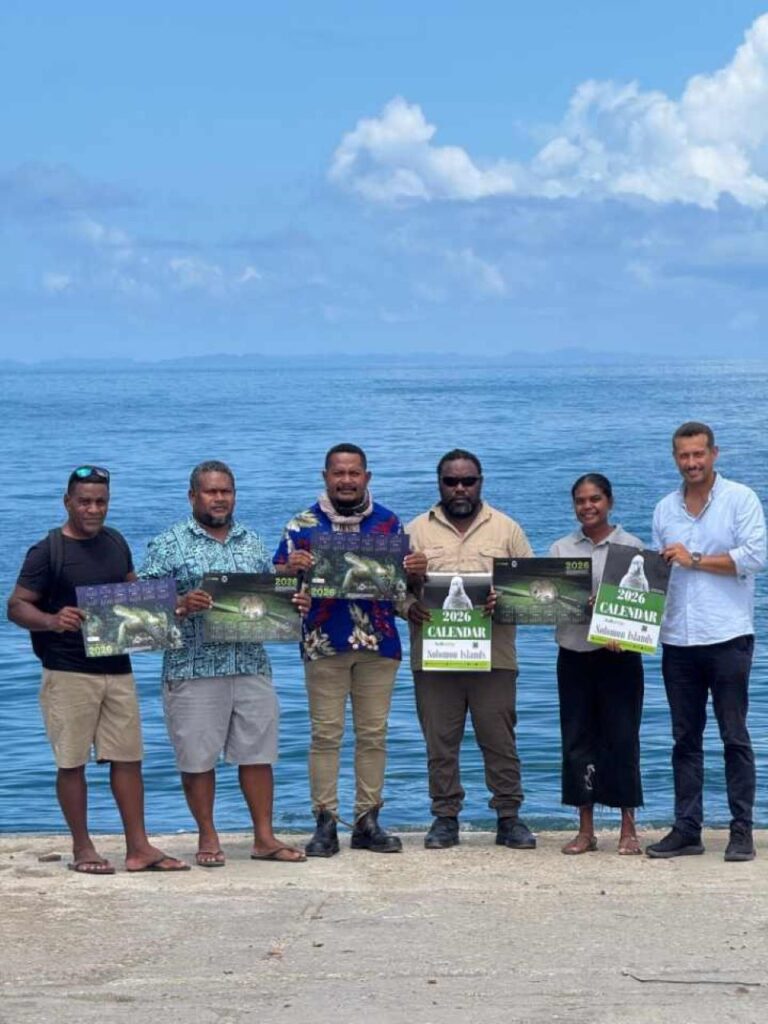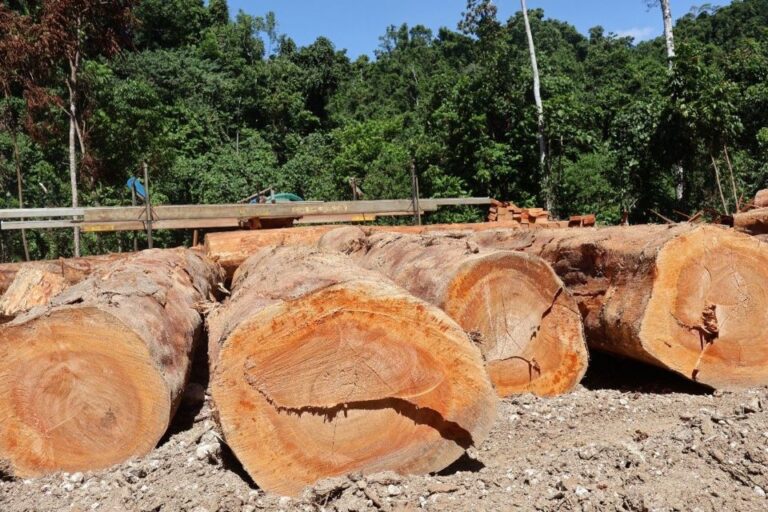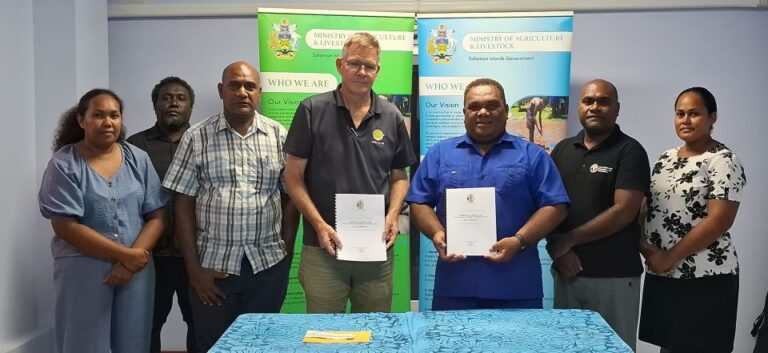BY JOHN HOUANIHAU
COMMUNITY-based conservation groups in Malaita Province will be benefiting from the Forest Development Fund (FDF) under the USAID Strengthening Competitiveness Agriculture Livelihood and Environment – Natural Resource Management (SCALE-NRM) Grant Project under Winrock International to transform the future of their water and forest biodiversity.
The grant project recipients in Malaita province are Ahetaha Water Conservation Association (AWCA) and Takataka Eco Village Conservation Foundation Inc. in East Are’are, Afutara Rural Training Centre (RTC) in West Kwaio, and Airahu Rural Training Centre (RTC) in Central Kwara’ae.
The project recipients received their grants on Thursday last week during the official signing and launching ceremony held at the Malaita Provincial Chamber in Auki.
The milestone ceremony was witnessed by representatives of the four recipient organizations, the US Government, USAID, SCALE-NRM, Solomon Islands Government, and Malaita Provincial Government.
Speaking during the ceremony, Premier Hon. Daniel Suidani told the grantees that he’s pleased to see that the USAID SCALE project continues to bear fruits with these initial grants now.
“This is an exciting time for Malaita province development as we witness the launching of the initial grants to the four recipients. What we are witnessing today and, in the weeks to come is the fruit of the hard and smart work,” the Malaita Premier told the recipients.
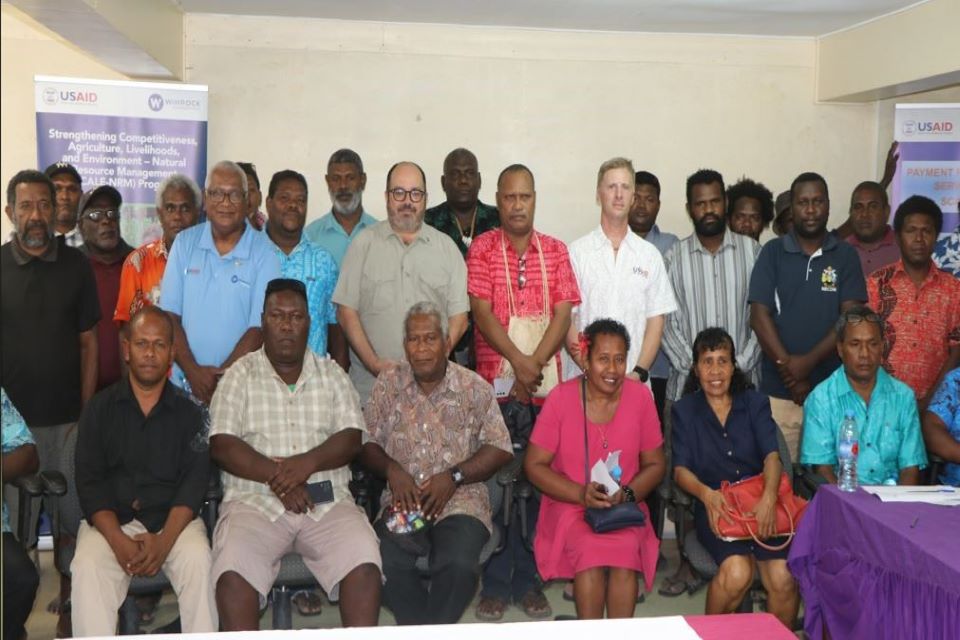
Hon. Suidani thanked all stakeholders involved in the FDF grant program and the first four selected grantees to have made it through the strict requirements.
“Thank you, USAID, for setting the new standard for us to be able to develop ourselves. And this is the way forward for donor-funded development in Malaita province.
“Malaita province does not want to be passive participants in developments that are taking place.
“We want to be active participants and find new structural arrangements within the governing structure of the provincial establishment is key to achieving sustainable development,” he said.
“I also want to acknowledge the grantees for their ability and capacity shown to take up the grants and implement what is required of them
“I encourage all of you to be good stewards and show good stewardship on behalf of the people of Malaita in implementing these grants successfully,” he said.
Also speaking at the grant signing ceremony was Dr. Morgan who reminded the grantees that they are not selected by mistake.
“It has a very long process in which out of 1367 applicants only 26 applicants meet the requirements to be supported and Grantee for this FDF round one.
“Ahetaha Water Conservation and Takataka Eco-Village Conservation are the first two community-based conservation that has successfully come through the competitive process,’’ said Dr. Morgan.
Meanwhile, Ahetaha Water Conservation Association (AWCA) Founder and Project Coordinator Eddie Huitarau expressed his gratitude and acknowledgment to the USAID SCALE-NRM under Winrock International.
“I am sure this is the first of the many more support to come from USAID and SCALE-NRM. I believe the time has come for Ahetaha Water Conservation to be a community-based conservation initiative to make the best out of its resources for beneficiaries,’’ Huitarau noted.
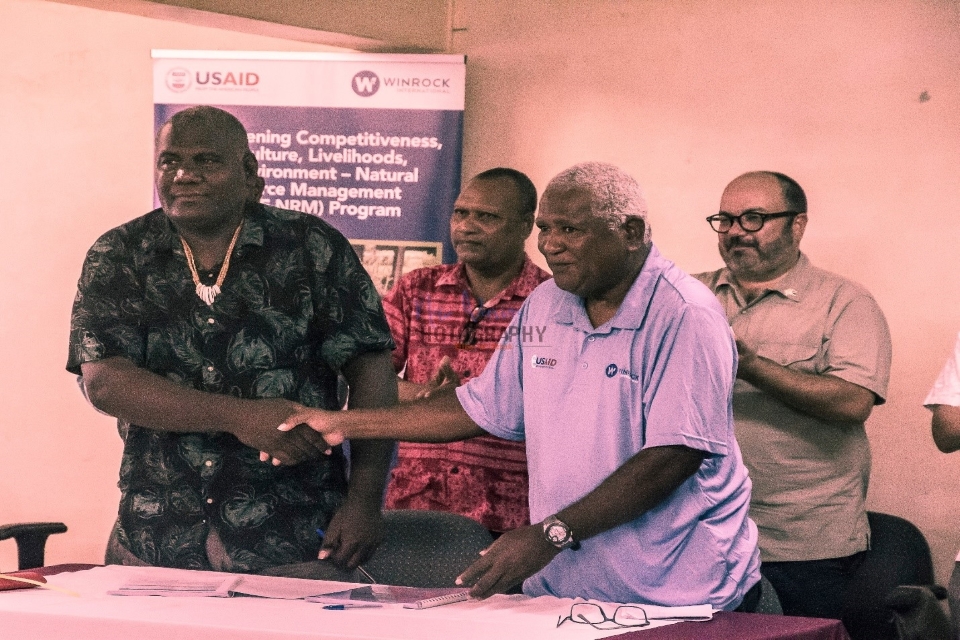
“First and foremost, I must admit that we are more than happy and so thankful that USAID through the SCALE-NRM project operating here in Malaita sees it fit to initially support our organizations to progress our goals. Truly an achievement for AWCA and marks the climax of our commitment to take initiative to protect and conserve our land and Natural Resources for last 7 years,’’ Huitarau said.
He said that this funding project will empower tribes and resource owners through engagements in alternative livelihood activities as well as taking the lead in managing their forest resources.
“With this project, it will help Ahetaha tribal members to value our traditional governance system, acquire ecological knowledge of our forest, and the importance of traditional skills. The training will increase and revive association members’ skills in the weaving of traditional baskets and the performance of traditional panpipe music. These activities will open new opportunities for livelihood income for community members in and outside the community.
“Conserving land, forest, fresh water, and biodiversity is about preserving natural resources to connect our past, present, and future,” Huitarau said.
He said that with that there will be a direct beneficiary who will be touched by this funding support that includes: Women, Men, Youths, and persons with disabilities.
“The indirect beneficiaries are those who are also connected to the tribe but may not be part of the eight affiliated communities actively working with AWCA,” he said.
In terms of going forward, Huitarau said this model of aid support is assistance in the right direction for resource owners and tribes to not only manage but develop leadership and management skills, take ownership and benefit from their resources.
He said that AWCA will do so by working with all community members including men, women, youth, and children – to help them plan and prepare for their future development aspirations.
“Therefore, our focus is to capacitate and empower community settings to take control over our natural resources while engaging in alternative livelihood activities. This is to stimulate economic activities at the rural level as larger scale market facilities are being developed on the need for AWCA to become financially self-reliant to manage our Natural Resources,’’ added Huitarau.
He said they look forward to working together in partnership with Winrock International to successfully achieve their project deliverables.
“The initial FDF award given to Ahetaha Water Conservation is to expand alternative livelihood opportunities to logging and at the same time strengthen community resilience and ensure they receive livelihood co-benefits derived from sustainable natural resource management and biodiversity conservation. For Takataka Eco-Village Conservation, it will provide capacity building and financial support to carry out forest inventory as the first step necessary to establish a Payment for Ecosystem Services (PES) Scheme under the MMGB partnership.”
Huitarau in his closing remark also thanked other grantee representatives for the milestone achievement.
He told them that as the first grantees they are the pioneers of this project rollout here in Malaita.
“We must be reminded to fully utilize the grants and make the best out of it to transcend the landscape of Malaita,’’ he said.


